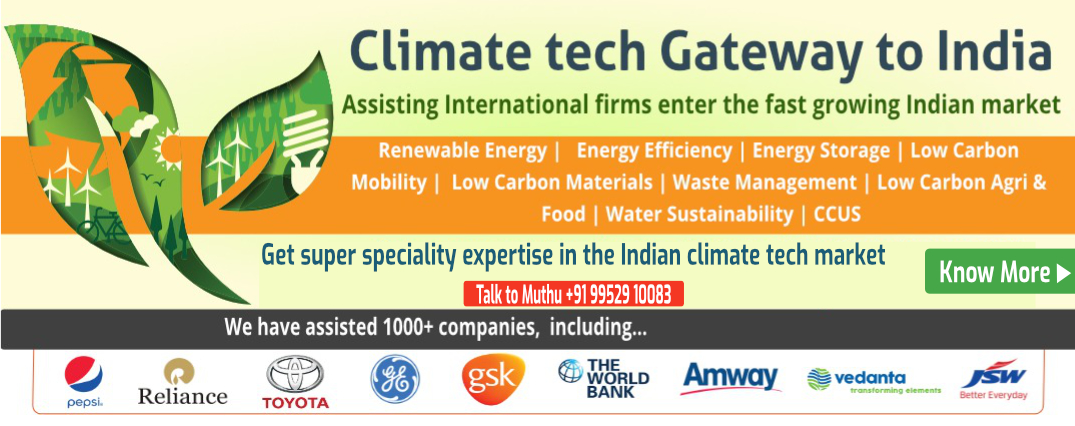This post is a part of Climate G2I Intelligence series from Energy Alternatives India (EAI), India’s leading climate-tech consulting firm.
G2I stands for Gateway 2 India, and provides comprehensive market intelligence and go-to market assistance for International firms entering the Indian climate-tech market. More about Climate G2I from here
French energy giant ENGIE has taken a major step toward expanding its footprint in India’s booming renewable energy market. As reported in Business Standard and Solar Quarter, the company has signed an MoU with the Government of Gujarat, promising to invest a massive Rs 17,200 crore (approximately $2.1 billion) in developing 2.5 GW of renewable energy projects in the state. This ambitious initiative is expected to generate approximately 14,000 new jobs, providing a significant boost to Gujarat’s economy and clean energy transition.
ENGIE is a multinational energy corporation focused on low-carbon energy and services. The company develops activities in power generation, transmission, distribution, natural gas, energy efficiency services, and more. Globally, ENGIE is a leader in renewable energy expansion, aiming to bolster its global renewable energy target of 80 GW by 2030.
India’s renewable energy sector is experiencing explosive growth. With ambitious government targets aiming for 500 GW of installed renewable energy capacity by 2030, India is rapidly emerging as a global leader in the clean energy transition. The Indian market is ripe with opportunities for international companies like ENGIE that possess expertise in renewable energy deployment. Factors like falling technology costs, growing energy demand, and rising awareness of climate change are bolstering the demand for renewable energy solutions.
Net Zero by Narsi
Insights and interactions on climate action by Narasimhan Santhanam, Director - EAI
View full playlistHowever, navigating this dynamic market presents its own set of challenges. Regulatory complexities, land acquisition hurdles, and grid infrastructure limitations are obstacles that international companies need to consider as they enter the Indian market.
Forging strategic partnerships is crucial for success in the Indian renewables landscape. The ENGIE-Gujarat collaboration showcases the effectiveness of such alliances and highlights the importance of government support for large-scale renewable energy projects. Furthermore, collaborations extend beyond government agencies to include research institutions, technology providers, and local players, creating a robust network vital for innovation and accelerated deployment.
India has implemented enabling policies, like its Production Linked Incentive (PLI) schemes and Green Hydrogen Mission, that are designed to incentivize renewable energy deployment and propel domestic manufacturing within the sector. Despite these efforts, India still faces a degree of reliance on imported renewable energy equipment. The government is taking steps to promote indigenization, fostering a more self-reliant renewable energy sector.
The ENGIE-Gujarat collaboration signals a positive trajectory for India’s renewable energy landscape, but it also highlights the unique challenges and complexities associated with this market. Companies seeking success in this sector must approach India with a combination of domain expertise, strategic partnerships, and a deep understanding of the local landscape. By navigating these complexities, international clean energy companies can play a vital role in accelerating India’s transition to a sustainable future.
This post is a part of Climate G2I Intelligence series from Energy Alternatives India (EAI), India’s leading climate-tech consulting firm.
G2I stands for Gateway 2 India, and provides comprehensive market intelligence and go-to market assistance for International firms entering the Indian climate-tech market. More about Climate G2I from here






 Our specialty focus areas include
Our specialty focus areas include



